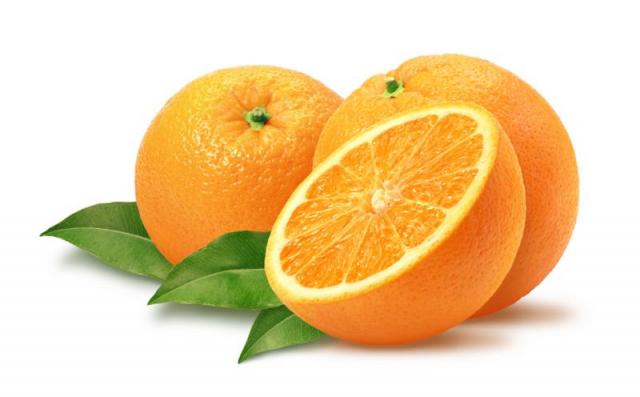Vitamin C
 Research over the past 30 years has demonstrated that Vitamin C can reduce uric acid levels in the body. One 2005 study of 184 participants concluded that the amount required to achieve a serum (blood) uric acid level reduction was 500 mg daily. The study showed that the participants had a reduction of uric acid levels by about 10%. Reductions were larger with those who had higher levels of uric acid at the start of the study. The study lasted two months and oddly those who were given a placebo showed a slight increase in uric acid levels. Some research has tried to debunk the beneficial properties of vitamin C reducing gout, but have merely come to the conclusion that adequate amounts of vitamin C can prevent a person from developing gout in the first place. Other research has shown that vitamin C may help turn the sharp crystals formed by uric acid into a liquid so that it flushes out of the body faster. Oranges are famous for containing vitamin C, but it is found in other fruits like: bananas, mangos, pineapples, kiwifruit, papaya, blueberries, and (of course) cherries. You can also find a plentiful supply of Vitamin C in yellow bell peppers, dark leafy greens like kale, spinach, turnip greens, and swiss chard, green peas, and tomatoes.
Research over the past 30 years has demonstrated that Vitamin C can reduce uric acid levels in the body. One 2005 study of 184 participants concluded that the amount required to achieve a serum (blood) uric acid level reduction was 500 mg daily. The study showed that the participants had a reduction of uric acid levels by about 10%. Reductions were larger with those who had higher levels of uric acid at the start of the study. The study lasted two months and oddly those who were given a placebo showed a slight increase in uric acid levels. Some research has tried to debunk the beneficial properties of vitamin C reducing gout, but have merely come to the conclusion that adequate amounts of vitamin C can prevent a person from developing gout in the first place. Other research has shown that vitamin C may help turn the sharp crystals formed by uric acid into a liquid so that it flushes out of the body faster. Oranges are famous for containing vitamin C, but it is found in other fruits like: bananas, mangos, pineapples, kiwifruit, papaya, blueberries, and (of course) cherries. You can also find a plentiful supply of Vitamin C in yellow bell peppers, dark leafy greens like kale, spinach, turnip greens, and swiss chard, green peas, and tomatoes.

